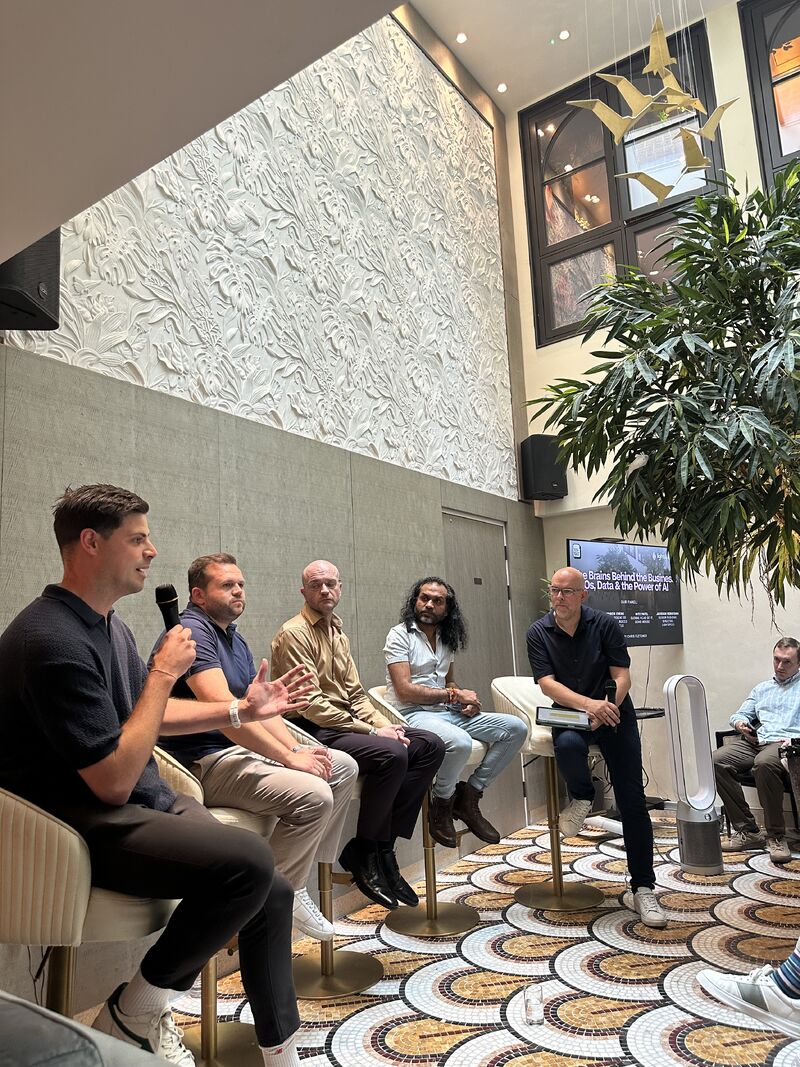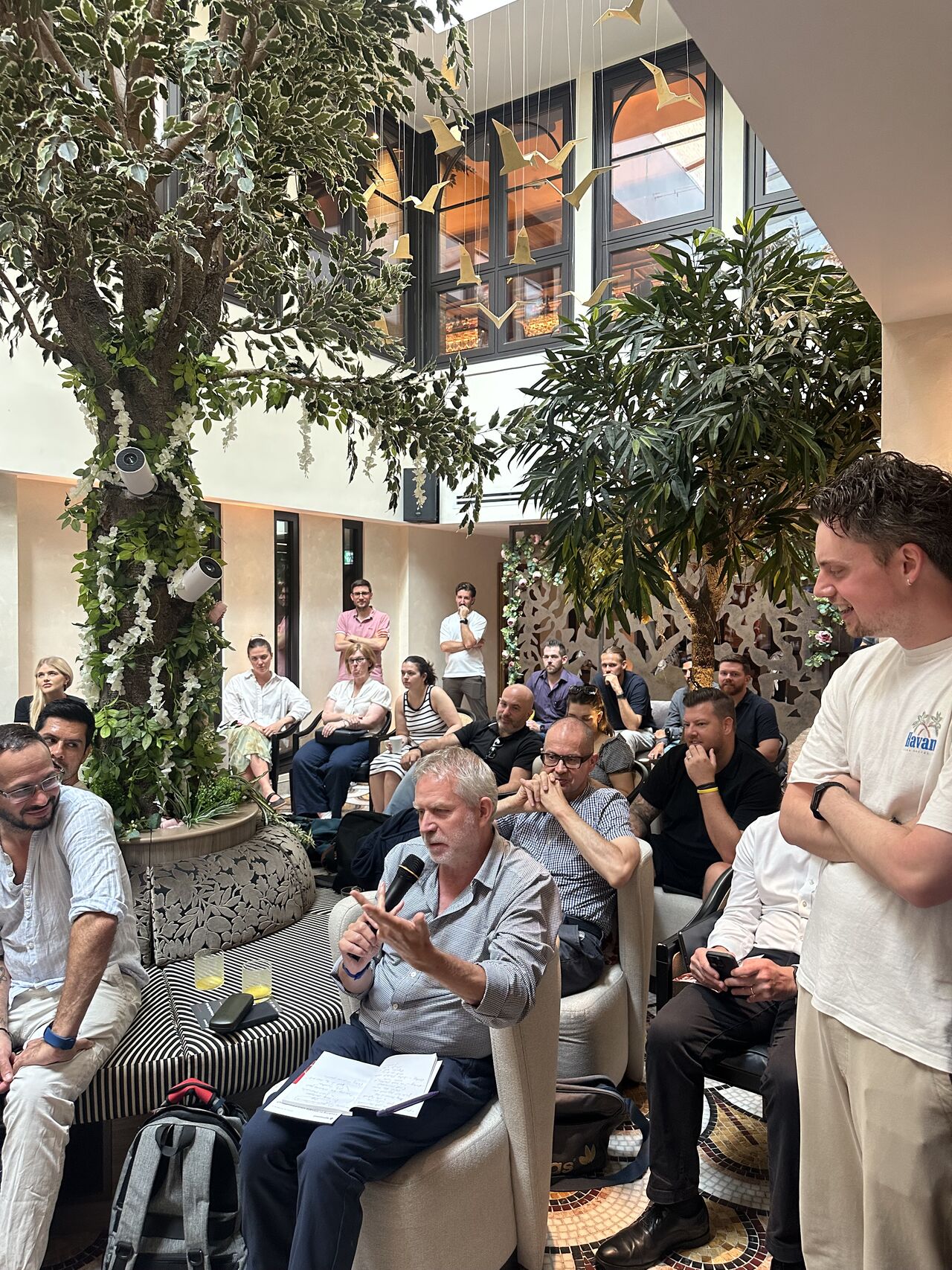Tech on Toast Summer Brunch: AI, Personalisation and the Next Chapter for Hospitality
Discover the key insights from Tech on Toast’s summer brunch at The Other House, where hospitality leaders explored how AI is driving personalisation, consistency, and smarter strategy across the industry.

Tech on Toast Summer Brunch: AI, Personalisation and the Next Chapter for Hospitality
On Wednesday morning in South Kensington, the Tech on Toast team gathered a packed room of hospitality leaders, technology innovators, and curious operators for our latest brunch event. Hosted at The Other House – a venue that knows a thing or two about marrying style with substance – the conversation zeroed in on one of the most talked-about topics in our industry right now: artificial intelligence.
But rather than hype or headline-chasing, our panel went deeper. This was about the real, operational impact of AI. How is it changing service? What does personalisation really mean in an age of algorithms? And perhaps most importantly – how do we stop chasing shiny tools and start building AI into business strategy with purpose?
Our panellists brought a wealth of perspectives:
- Jackson Versitano, Senior Regional Director, UK & RoEMEA Hospitality at Lightspeed, who has been on more AI panels than he can count this year.
- Andrew Evers, Vice President of Technology at Rocco Forte Hotels, who balances heritage luxury with innovation.
- Mitz Patel, Global Head of IT at Soho House, with a focus on member experience and operational consistency.
- Jamie Morton, Sales Manager, representing the frontline of sales and customer service technology.
From Buzzword to Business Tool
The session opened with a simple truth: AI isn’t a magic button. It’s a tool – and like any tool, its value depends on how and why you use it.
Jackson noted that while “AI” gets thrown around as a catch-all, the most successful projects start with a clear business goal. “Identifying why you want to do it is probably the most important thing,” he explained. Throwing money at the latest tool without clarity won’t improve your business – it just drains resources.
Mitz agreed, sharing how Soho House uses AI for member personalisation. With 95% of members using the app, data informs everything from upselling to tailoring in-house experiences. But the goal isn’t automation for its own sake – it’s giving teams instant, digestible insights so they can have richer, faster conversations with guests.
Consistency is the New Luxury
For Rocco Forte Hotels, the aim isn’t just personalisation – it’s consistency. Andrew explained that while each property is unique, guests should feel the unmistakable Rocco Forte touch wherever they stay. AI can help track preferences across locations, so the guest who loves a corner suite in Rome is offered the perfect match in Edinburgh.
It’s a reminder that technology’s greatest strength isn’t replacing human service – it’s enabling it. “You didn’t come to work in your uniform to sit at a computer,” Andrew pointed out. “You came to smile and welcome guests.”
The Right Partner, Not Just the Right Product
Partnerships were a recurring theme. The panel agreed that the most successful AI and tech adoption happens when operators work closely with suppliers, co-developing solutions that fit their unique needs.
“We don’t do business with suppliers,” Andrew said. “We’re looking for partners. What’s good for us should be good for them too.”
Mitz shared that Soho House often teams up with like-minded businesses to approach tech vendors as a group, increasing their influence and shaping product roadmaps in their favour.
Jamie added that when investing in technology, it pays to find specialists rather than “one-stop shops” that try to do everything. Deep integration with best-in-class providers creates a stronger ecosystem than relying on a jack-of-all-trades.
Guardrails Before Green Lights
One of the most practical takeaways came from Soho House’s approach to AI governance. Mitz described how the organisation is rolling out a strict AI usage policy to prevent accidental data leaks – an easy risk when employees feed customer information into public chatbots.
For now, some AI tools are locked down entirely until staff are trained and the policy is live. It’s a balancing act between enabling innovation and protecting sensitive information – one many operators in the room nodded along to.
Beyond Cost Savings
It was clear from the discussion that while AI can reduce costs, that’s not the only – or even primary – motivation for many operators. In luxury and premium segments, the focus is often on enhancing guest experience, driving loyalty, and maintaining brand identity.
As Andrew put it: “AI is not the result. It’s a tool. Stay focused on your targets, stay true to your brand values, and then AI has purpose.”
What’s Next? Trends on the Horizon
When asked about the future, the panel didn’t even pretend to predict five years out. AI is moving too quickly. But there were some shared predictions for the next 12 months:
- Speed of insight – AI will make complex data instantly actionable, turning multi-day analysis into minutes.
- Blue-sky discovery – Agentic AI could surface patterns and opportunities we didn’t even know existed.
- Better guest profiling – More intelligent CRM integration will make personalisation faster and more precise.
- Voice AI adoption – From handling out-of-hours bookings to freeing up front-of-house staff, conversational AI is set to grow.
But there was also a note of caution. The risk, Andrew warned, is over-automating guest interactions to the point they feel transactional. “Eventually everything is going to be completely AI, and every recommendation is going to come from AI – and it’s going to become tiresome.” The human touch will be more valuable than ever.

Key Takeaways for Operators
The brunch wrapped up with networking over coffee and pastries, but the big ideas were still being debated around the tables. Here are the distilled lessons for anyone looking to bring AI into their operation:
- Start with strategy, not software – Be crystal clear on the problem you’re solving before you pick a tool.
- Protect your data – Educate teams and set policies before rolling out AI widely.
- Pick partners, not just products – Work with vendors who will evolve with you.
- Keep the guest at the centre – Use AI to enhance, not replace, human service.
- Be ready to adapt – The AI landscape changes by the month. Build for flexibility.
Why These Conversations Matter
Hospitality has always been about people, but technology – and AI in particular – is reshaping the possibilities. Events like this brunch are where ideas cross-pollinate: luxury hoteliers learning from casual dining operators; tech vendors hearing first-hand where their products fall short; and everyone in the room leaving with a clearer sense of what’s next.
At Tech on Toast, we’ll keep bringing the industry together – over brunch, coffee, or whatever fuels the best conversations – to make sure hospitality tech isn’t just talked about, but understood, challenged, and put to work.
About the Panellists
Jackson Versitano – Senior Regional Director, UK & RoEMEA Hospitality at Lightspeed. Jackson works with hospitality brands of all sizes to adopt tools that streamline operations, improve profitability, and deliver memorable guest experiences.
Andrew Evers – Vice President of Technology at Rocco Forte Hotels. Andrew leads technology strategy across a portfolio of luxury hotels, balancing cutting-edge innovation with the timeless service the brand is known for.
Mitz Patel – Global Head of IT at Soho House. Mitz oversees the technology infrastructure for the members’ club and hospitality brand, focusing on data-driven personalisation, operational efficiency, and digital member engagement.
Jamie Morton – Sales Manager with deep experience in hospitality technology. Jamie works closely with operators to deliver solutions that enhance customer service and operational efficiency.
.avif)

.png)